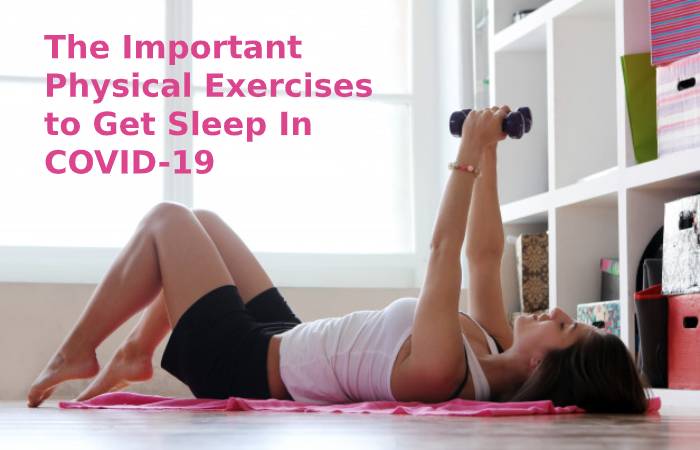In front of the Sleep In COVID-19, it recommends a very good to sleep between seven and eight hours per night. One investigation reported a direct relationship between shorter sleep periods and an increased risk of catching a cold in healthy adults ages 18 to 55. Less sleep provide a higher chance of contracting a virus than those who sleep for the recommended hours. In this era full of uncertainty and doubts, you must control what is in your own hands to do it, and they are, among others, healthy sleep habits.
Table of Contents.
The Adequate night’s sleep In COVID-19

The scientific explanation is simple. An adequate night’s sleep stimulates the production and release of cytokine. This protein helps each person’s immune system respond quickly to antigens, foreign substances from undesirable invaders such as viruses that trigger the body’s immune response. That is why sleeping well is a fundamental part of protecting against any infection and of an efficient response to it.
The health May get worsen because of low Sleep, hear are some mention below
- Sleeping poorly not only makes you feel worse physically
- mentally also we will be in disturb due to less sleep,
- At reaction times are also impaired because of poor sleep;
- The chances of depression increase.
- People become more anxiety of less sleep
- weight gain grows for not sleeping adequately.
- It also affects calorie intake expenditure on sleeping times.
Sleeping well has never been as important as now. So its recommendations to fall asleep on these days where many people spend the night tossing and turning in bed while continuing to check the alarmist social networks on their phones. It is difficult to sleep well when anxiety levels are high, as in the case of this pandemic.
To sleep well in COVID-19

You must establish discipline and a schedule to sleep and stick to them because the enormous help going to bed and getting up, by this body function will become more constant and healthy.
As there are now many people who are not attending work because of respecting the government orders, we get more free time to sleep well is one of the requirements to keep our body and immune system healthy.
You can use earplugs or a sleep mask, even a light pillow or a T-shirt on the face works. Everything we should do to make the bedroom comfortable and as dark as possible. Although those who feel tired should sleep, without affecting healthy sleep, a nap of twenty to thirty minutes.
It is essential not to check social networks, email, or watch stressful TV shows, at least 90 minutes before bedtime, because giving priority to sleep is more important than ever, according to the Center for Sleep organization.
It is essential to stay informed, but never watch the news before sleeping and not watch programs that increase anxiety in the afternoon. Turning off cell phone notifications is also helpful. The mobile should configure to automatically silence notifications at night if a schedule is set in the “do not disturb” function. Who thinks they are going to sleep better after watching social media?
Fears should calm before bedtime by setting the programs for the next day, for both children and adults. It may help alleviate some of this uncertainty because if we repress our anxieties, they may explode in the dark; therefore, at night, the mental deposit must be cleaned.
The Important Physical Exercises to Get Sleep In COVID-19

Exercise and exercise your heart every day, because that causes fatigue and prepares you to go to sleep. At home, we can have yoga videos or quick Zumba dance, and other aerobic exercises can help elder people to have simple and effective workouts to have enough stains for getting good sleep.
Mind Exercises
Manage anxiety with gratitude, breathing, and meditation by making a mental or written list of the things you should be thankful for it. Use the five to eight times of breathing technique; In a comfortable position, with your eyes open or closed, inhale for four seconds, hold your breath for seven seconds, and exhale slowly for eight seconds. Then repeat as many times as necessary. Also, keep in mind to practice meditation or progressive relaxation as sleep comes.
Food and drink
You should not eat anything before going to bed at night as heavy digestion can be confused with anxiety, which produces even more anxiety. And never have coffee or drink to sleep. Coffee is healthy in moderation, but more can cause tremors, nervousness, and an irregular pulse.
Alcohol gives sleep but does not produce a quality rest because it causes fragmentation of sleep as well as weakening the immune system like tobacco, in addition to being a producer of insomnia.
Other important details
If you can, it is good to take a hot shower or bath 90 minutes before bed. Raising the temperature and then, when it drops, helps produce melanin, a relaxing substance. Sheets should wash twice a week, and housekeeping, particularly in the bedrooms, should be done, as you are likely to spend more time here than ever.
A cozy atmosphere can promote peace of mind. Whoever is fighting any infection, their body needs much rest to heal quickly and to start. They must sleep at least two hours more than usual and change clothes and sheets more frequently to control the spread of bacteria or viruses.


